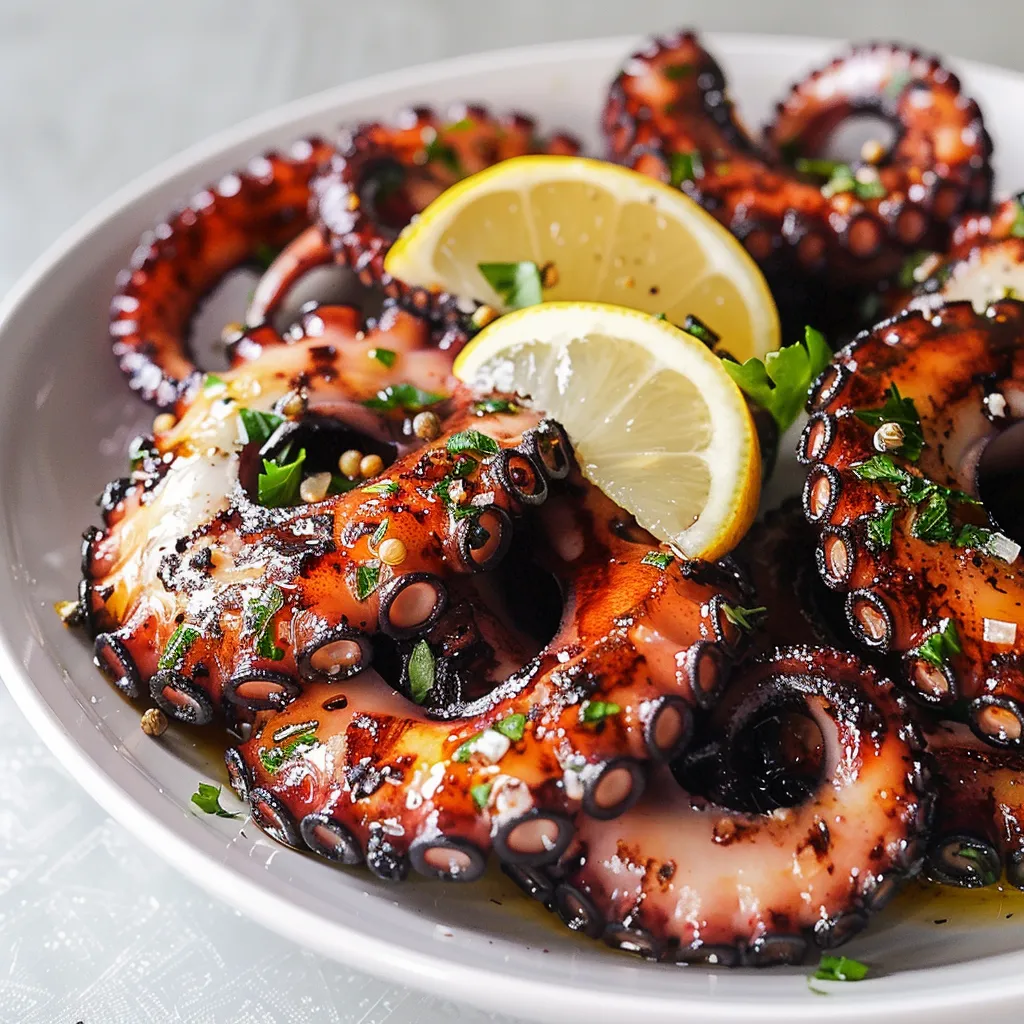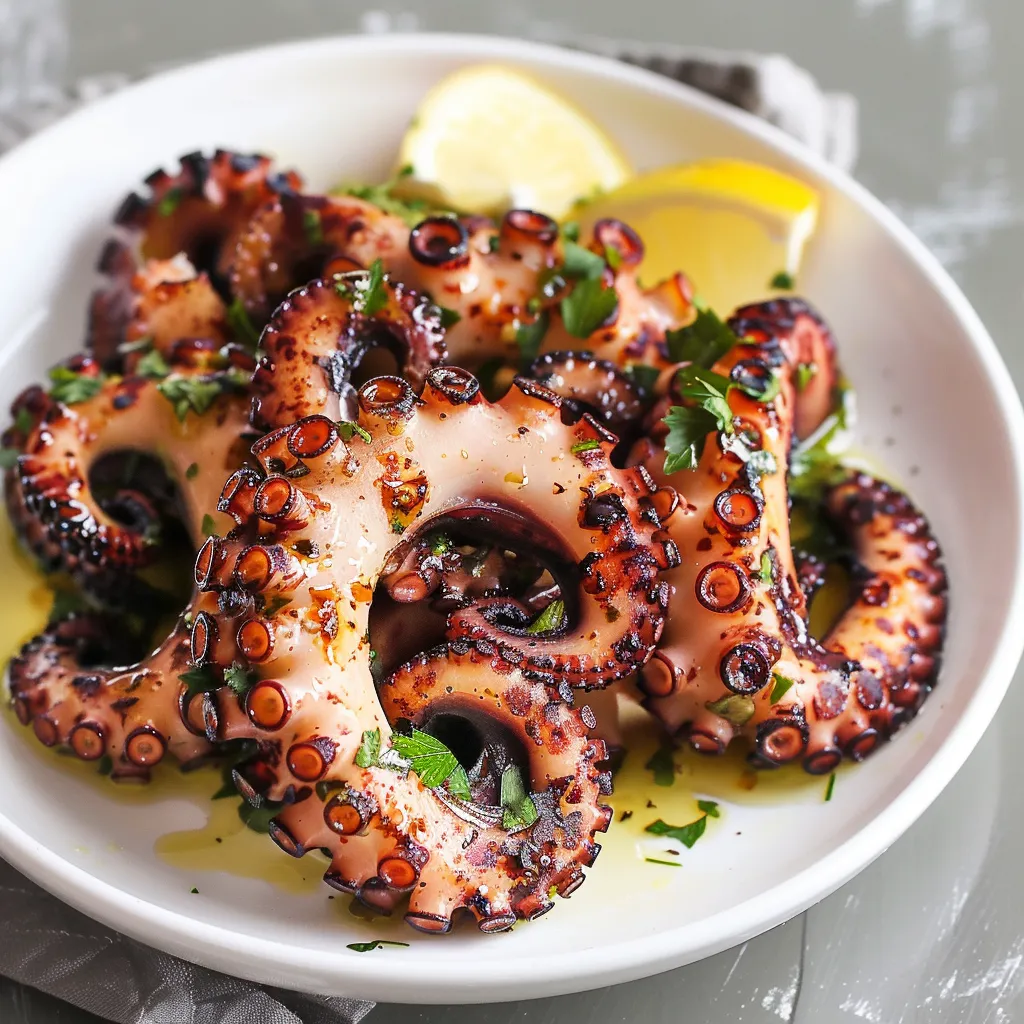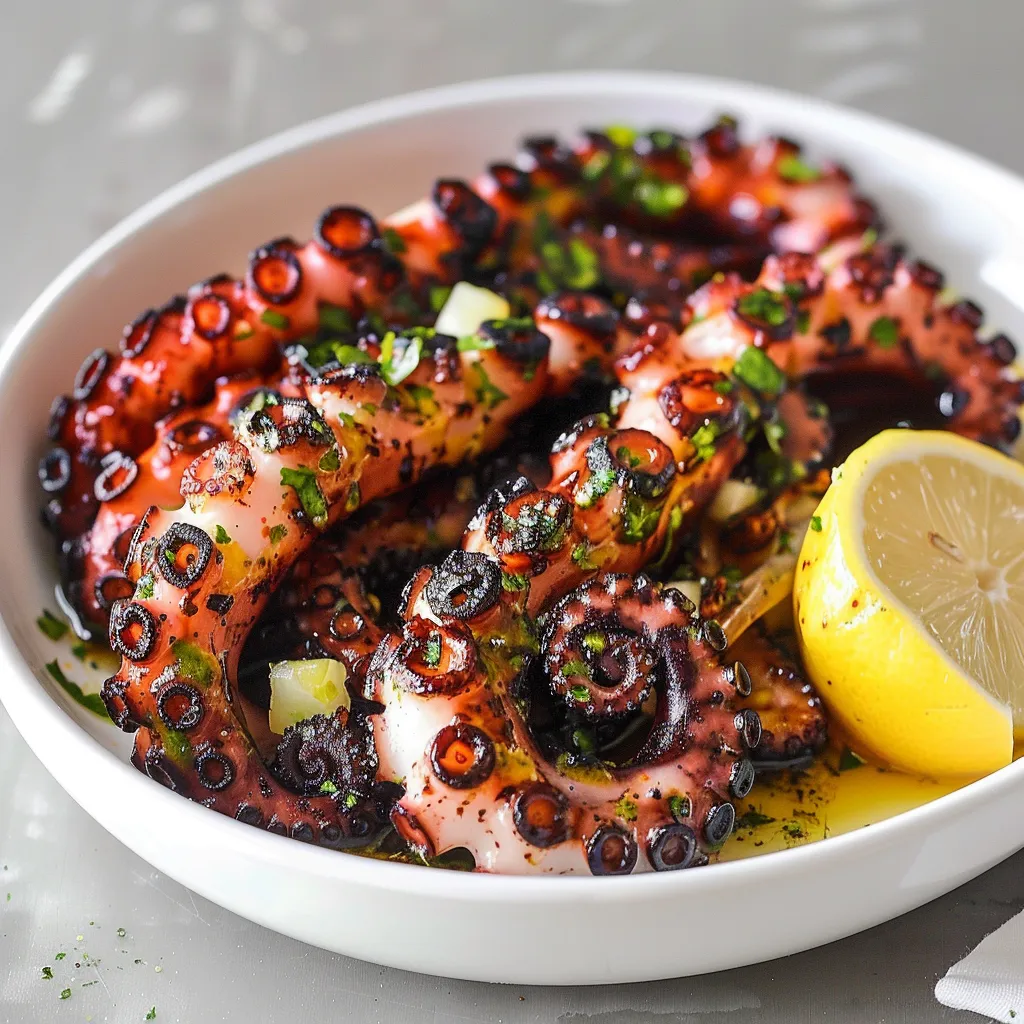 Pin it
Pin it
Learn how to make octopus that's soft inside with a tasty charred outside using Mediterranean flavors. This method turns tough octopus into something special by boiling it properly then quickly grilling it for that perfect tender-crisp contrast.
I've tried cooking octopus many different ways over the years, and I've found that getting the boiling time just right is crucial. Too quick and you'll be chewing forever, too long and it falls apart. You've hit the right spot when your fork meets just a bit of resistance.
Key Ingredients
- Fresh octopus: Gives you better texture and real ocean taste without any added chemicals
- Premium olive oil: Brings out the natural flavors and helps create a gorgeous exterior
- Fresh lemon juice: Adds brightness and cuts through the rich smoky flavors
- Garlic: Adds deep flavor during the time it sits after cooking
- Mediterranean herbs: Work wonderfully with the natural sweetness of octopus
Cooking Method
- Softening First:
- Drop whole octopus into actively boiling water and watch the tentacles naturally curl up. Lower heat so it's gently bubbling, not violently boiling. Check by sticking a fork in the thickest part - it should go in without much effort.
- Cooling Down:
- Let octopus cool naturally spread out flat, allowing it to gradually reach room temperature. This waiting step is vital for keeping moisture in and getting the texture just right.
- Grilling Tips:
- Coat tentacles thoroughly with olive oil, making sure they're evenly covered. Set on hot grill and listen for that sizzle sound that tells you the heat is right. Look for color changes and light charring before flipping.
- Adding Flavors:
- Season right away while still hot so flavors sink in. Let it sit briefly before serving so tastes can blend together fully.
 Pin it
Pin it
My grandma from the Mediterranean always dipped the tentacles in boiling water three times before fully submerging them - it's an old tradition that somehow helps get that amazing texture every time.
Serving Ideas
Serve your octopus on a wooden cutting board with a drizzle of your best olive oil. Add some grilled lemon halves, fresh herbs, and chunky sea salt so everyone can season their own. It's great warm or at room temp with crusty bread and garlicky aioli.
Tasty Variations
Try a Spanish twist with garlic and smoked paprika. For a Greek version, add plenty of oregano and serve with a lemony oil sauce. Japanese style works great too - just brush with soy sauce and sweet rice wine before grilling, then finish with Japanese spice blend.
Storage Tips
Keep leftover octopus in a sealed container covered in olive oil for up to three days. Warm it up gently on the grill or under the broiler just until heated through. Don't use the microwave as it can make the meat tough.
 Pin it
Pin it
Octopus on the grill really captures what Mediterranean cooking is all about - simple methods that let great ingredients be the star. After years of making this dish, I've found that being patient during boiling makes all the difference. Watching guests' faces when they taste this transformed seafood, now tender and perfectly charred, always makes the effort worthwhile.
Frequently Asked Questions
- → How long should I boil octopus before grilling?
- Cook it for 40-60 minutes, using 45 minutes for every 2 pounds. Check if it's done by sticking a fork where the head joins the tentacles - it should go in smoothly.
- → What size octopus works best for grilling?
- Baby, small, or medium ones are ideal, but big octopus can turn out great too.
- → How do I prepare octopus for cooking?
- Wash it in cold water, take out the beak from the middle of the tentacles, and if needed, cut away eyes and guts. You might want to freeze it overnight to make it softer.
- → What's the best seasoning for grilled octopus?
- Mix up some lemon juice, good olive oil, garlic, oregano, and fresh herbs like parsley. Thyme, rosemary, and chives taste great too.
- → What can I serve with grilled octopus?
- Pair it with fresh salads, feta cheese, olives, and capers for a nice Mediterranean-style dinner.
